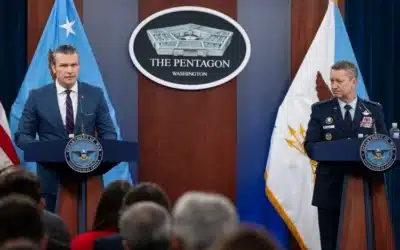An UN official with the World Food Program said that the hunger crisis in Gaza is persisting under the ceasefire. Israel agreed to allow at least 600 aid trucks into the Strip daily, but has permitted far fewer aid shipments into Gaza.
“We need full access. We need everything to be moving fast. We are in a race against time. The winter months are coming. People are still suffering from hunger, and the needs are overwhelming,” Abeer Etefa, senior spokesperson for the WFP, said Tuesday.
She explained that the amount of aid entering Gaza remains insufficient. “A major obstacle is the continued closure of the northern crossings into the Gaza Strip. Aid convoys are obliged to follow a slow, difficult route from the south.” Etefa continued, “To deliver at scale, WFP needs all crossings to be open, especially those in the north. Full access to key roads across Gaza is also critical to allow food to be transported quickly and efficiently to where it is needed.”
The UN reported on Tuesday that just 200 aid trucks entered Gaza. While this amount is up from before the truce, it is still far short of what is needed to sustain the Palestinians. The WFP says it has distributed one million meals since the ceasefire began. There are well over one million people living in Gaza.
The humanitarian crisis expands beyond food shortages. Last week, the al-Shifa reported that a lack of medical supplies was causing people to die of treatable injuries.
The ceasefire agreement has not provided a significant reprieve for the Palestinians. Only a small number of people have been able to return home. Israel has also not stopped killing Palestinians. Over 230 Palestinians have been killed during the ceasefire. Hamas has largely upheld its commitments under the deal.

































